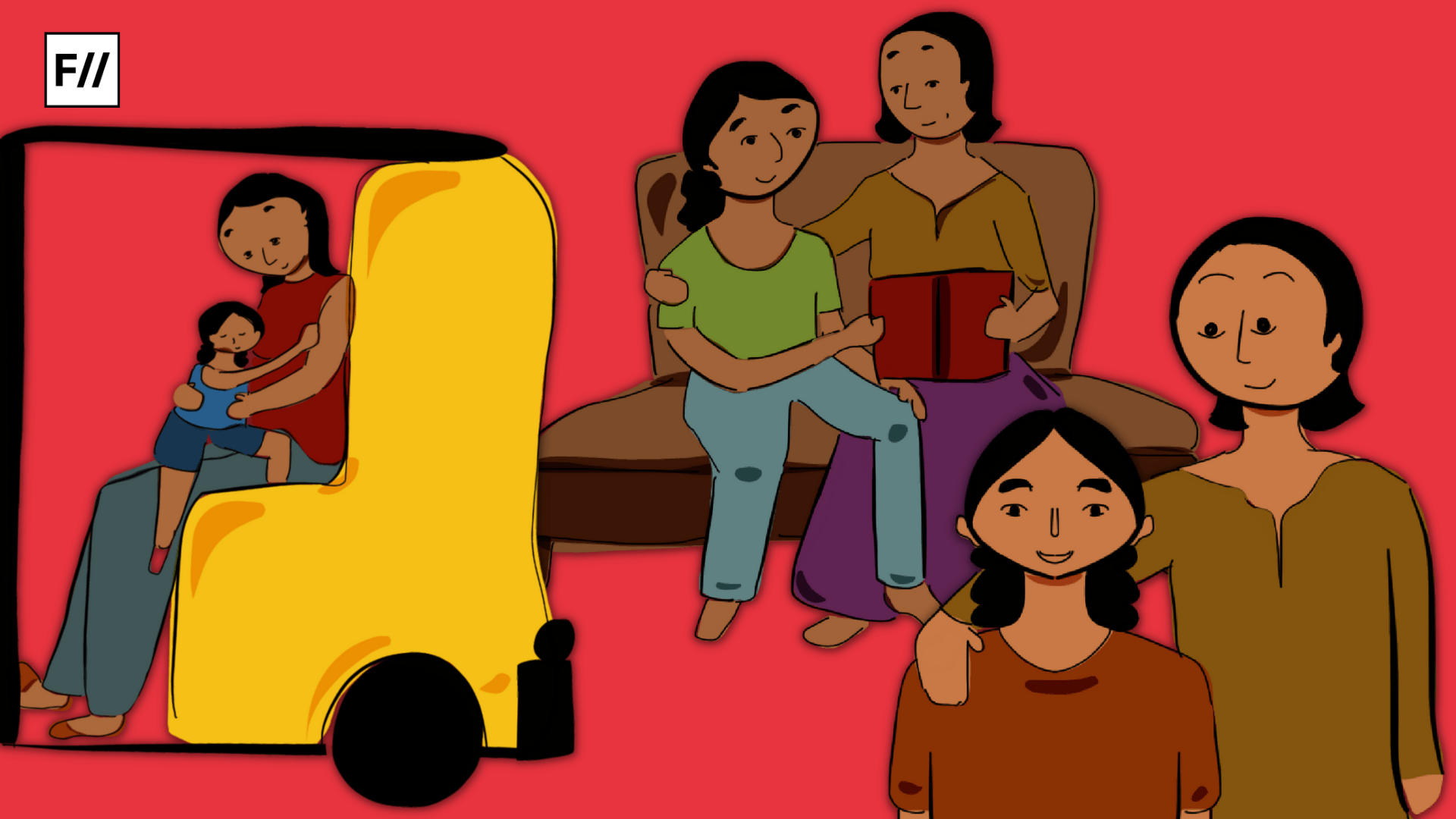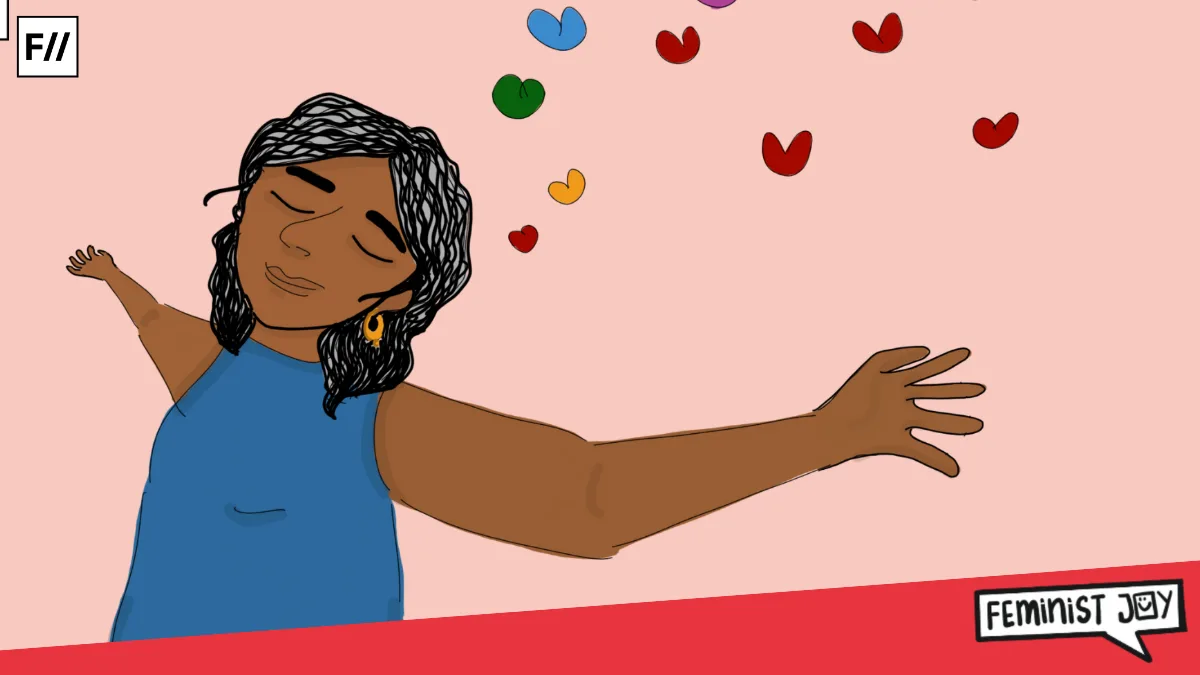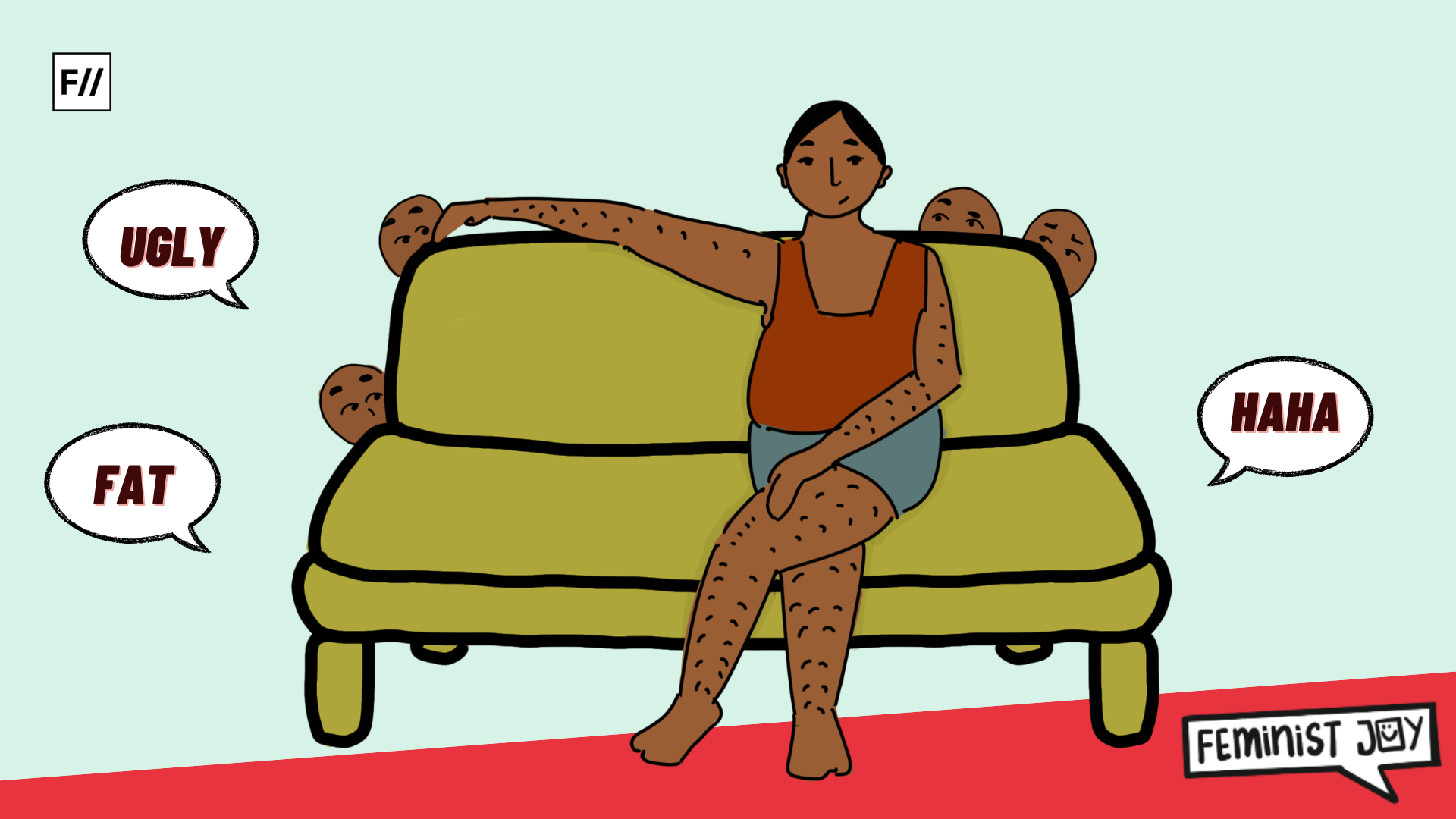Editor’s Note: FII’s #MoodOfTheMonth for September, 2021 is Parenthood. We invite submissions on the many layers of being parents, having parents and navigating the social norms of parenting throughout the month. If you’d like to contribute, kindly email your articles to sukanya@feminisminindia.com
When my daughter was about 4 years old, we were home, briefly visiting my parents. It was monsoon, and during the season it is customary to indulge the self in some pampering oil baths. Oil baths, in my home, roughly translate to dunking oneself in very generous amounts of coconut oil for adults and coconut milk for children, taking time to gently rub it into the skin, and then washing it away with green gram powder.
It’s a greasy, messy affair, and takes a minimum of an hour. The day we landed home, my mother casually announced that the child’s skin looked famished and that she would give her an oil bath. Neither I nor the child paid any heed. Came bath time, and we realised my mother wasn’t joking.
My mother, ready with a whole bowl of coconut milk, was already boasting away about the masseuse she was to her children. But her granddaughter was barely impressed, and she vehemently opposed her granny from getting anywhere close. I tried reasoning with the child and gathered that she did not want anyone but her mother to bathe her. She asserted that she did not want to undress in front of Umma (‘mother’ in my native tongue), let alone permit her into the bathroom.
I thought it was fair, and told my mother that she wasn’t comfortable. My mother’s quick response was, “So? It’s okay, she’ll be fine once we get started, I’ll see to it that she doesn’t cry much”. I convinced my mother that we’ll do this another day, and she was visibly upset.

While I knew my mother meant well, I did not want to convince my daughter to forgo her comfort. It’s more than just comfort, isn’t it?. I could not conjure a way to explain to my mother that when the child has asserted she is uncomfortable about the whole idea of exposing her body to her grandmother, that is not debatable, we must accept it. She may be a child, but her consent matters nonetheless.
Her mother persuading her to bite down her refusal and discomfort because it is her grandmother would lead her to believe (maybe), that’s the norm. Any other adult who she looks up to can also tell her the same thing, and she may go back to this memory and cave into letting the adult or a friend or an elder touch her, perhaps? What if this impacts her so much that she believes her opinion about herself doesn’t matter?
I always find it tricky navigating consent. It is practically impossible to let a child of such tender age have complete ownership of herself. Most often, we as parents make decisions for our children. I have always asked my daughter if she is ready for her meal, her shower, etc. I have also forced her into all of this when we run on a busy schedule. I have tried to overlook her choices and have dragged her for showers simply because we had to be out of the home within a particular time
Clearly, I am ruminating more than required, but aren’t we all victims of having had no say in our upbringing? Haven’t we all caved into something or the other we were not comfortable with because, well, it came from someone who cared or we cared for? We were told they knew better, we were told it’s for our good, we were told we could not have made the decision ourselves. The “out of love and concern” bullshit was shoved down our throats more often than we could swallow.
Also read: ‘We Hold On Without Stifling Each Other’: Figuring Motherhood Out With An Eight Year Old

I always find it tricky navigating consent. It is practically impossible to let a child of such tender age have complete ownership of herself. Most often, we as parents make decisions for our children. I have always asked my daughter if she is ready for her meal, her shower, etc. I have also forced her into all of this when we run on a busy schedule. I have tried to overlook her choices and have dragged her for showers simply because we had to be out of the home within a particular time.
It never occurs to me during such times that children do not understand the adult’s concept of time, and that it is utterly confusing to the child when I decide to take away her autonomy over decisions that she was allowed to make up until then, without notice.
I think the challenge for me, as a parent, is to accept her judgments, and not question them. To help myself accept her space, and her choices. To understand and practice that as much as I know what is right/good for her, she knows it herself too. I must muster the courage to watch her make mistakes, and evolve from them. I cannot mould her always, and I must learn to accept her the way she wants to mould herself
I try to be as mindful as I can be when I have to make decisions for her. I explain why I think something is better for her, I ask her why she does not agree, and that we would negotiate. We try and find a middle ground, almost always, except for what she wants to eat. This is the most excruciatingly annoying conversation to have with a child, especially when the child is a fussy eater.
I find it the most stressful. I think there are times I have broken down when trying to convince her that she must have three meals a day. Sometimes, I think I should force food down her throat and honestly, I have done it too. But I try my best to not force anything on her, even food.

I think more than the conflict of letting her decide, the incapability lies in me to accept her decision. She is five now and I can still nudge her. But I recall how even as teenagers our parents decided for us, for some of us even as adults. We were told they knew what was better. Doesn’t this come from a place of mistrust? We are sure the child would make a wrong decision, but who decided one should get it all right?
It is okay to make wrong decisions, it’s okay to err, it’s okay to fail. Why are we shielding them, or not letting them explore themselves? Maybe they make great decisions, maybe they make terrible decisions and are absolutely capable of owning it up. How do we now? Maybe at 15, they got it wrong. They also did not get it right at 20, but at 30 maybe they will?
I think the challenge for me, as a parent, is to accept her judgments, and not question them. To help myself respect her space, and her choices. To understand and practice that as much as I know what is right/good for her, she knows it herself too. I must muster the courage to watch her make mistakes, and evolve from them. I cannot mould her always, and I must learn to accept her the way she wants to mould herself.
I had initially decided to practice consent with my daughter primarily because of how unfair the world is to women, but in the process what I gathered is that sex or gender is immaterial in navigating consent with a child. Consent cannot be limited to one’s body, identity, age and physical space. It is so much more. It is about respecting the other person, regardless of all categorisations.
Also read: Plants, Pandemic And Children: Discovering The Joys Of Gardening With A Six Year Old
Basreena Basheer is a Bangalore-based UX writer. Any spare time between work, chores, and her invincible little half is overtly enjoyed by trying to perfect a Mappilla (aka Moplah) dish or eating a cake. On good days, the mother-daughter duo tries to educate each other on living a mindful and sustainable life. You may find her on Instagram
Featured Image: Ritika Banerjee for Feminism In India




